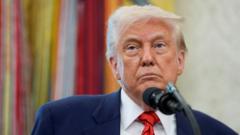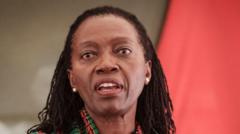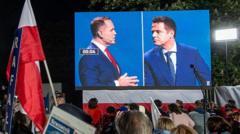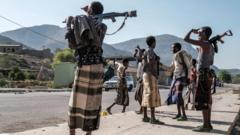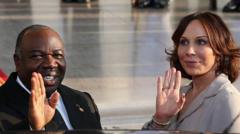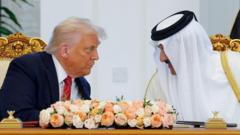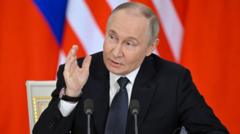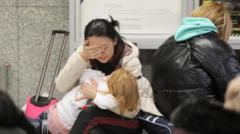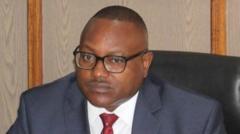The upcoming presidential elections in Romania present a stark contrast between two candidates: George Simion, who advocates for nationalism and Euro-skepticism, and Nicusor Dan, who promotes unity with European partners. The outcome could significantly impact Romania's trajectory within the EU and NATO, reflecting deeper societal frustrations and desires for change.
Romania's Election: A Divisive Choice between Nationalism and Liberalism

Romania's Election: A Divisive Choice between Nationalism and Liberalism
As Romania heads into a contentious second round of presidential elections, the political landscape is polarized between George Simion, a far-right nationalist, and Nicusor Dan, the pro-European liberal mayor of Bucharest.
As Romania prepares for the second round of its presidential elections, the stakes are higher than ever, with potential implications that could reshape the country’s relationship with the European Union and NATO. The initial election last year ended in controversy, with allegations of Russian interference that resulted in the annulment of the vote. Now, the political battleground is set with George Simion, a far-right nationalist, facing off against Nicusor Dan, the liberal incumbent mayor of Bucharest.
Voters expressed their sentiments in the first round held on May 4, where Simion emerged as the front runner, capitalizing on widespread dissatisfaction among the electorate. He boldly stated that he voted for a future that must be “decided only by Romanians.” This sentiment resonates with a significant portion of the population who feel neglected by traditional political parties, typically dominated by social-democratic ideologies.
Teleorman County, one of Romania’s poorest regions, displayed a notable shift in voting patterns, with 57% supporting Simion. Social media plays an influential role, amplifying narratives that resonate with an “anti-system” message. Felicia Alexandru from Aperio Intelligence notes that the support for Simion reflects an uprising against long-standing political corruption and dissatisfaction with the status quo.
However, the election is not merely a reflection of discontent but highlights a divergence in priorities. Simion’s campaign echoes populist sentiments reminiscent of right-wing politicians globally, advocating for an "America First" style approach. He has made headlines with his controversial remarks about foreign leaders and his promises for a “Romania First” policy, which raise concerns regarding the country’s foreign relations and commitments.
Conversely, Dan champions a pro-European stance, advocating collaboration with European partners and emphasizing transparency and integrity in governance. He also boasts substantial achievements during his tenure as Bucharest’s mayor, which has garnered him support from voters like Roxana, a factory owner concerned about the potential international ramifications of a Simion presidency.
As the elections loom closer, the conversations around candidates reveal a demographic that is deeply polarized. Some see Simion as a breath of fresh air aiming to challenge the established order, while others view his provocations and nationalistic rhetoric as a significant threat to Romania’s integration with European alliances.
With mounting speculation about the future of Romania's political landscape, the potential consequences of these elections extend beyond national borders, raising questions about stability, economic relations, and Romania's identity on the European stage. Should Simion prevail, the implications could lead to a chaotic political environment driven by nationalism and isolationism; whereas, a victory for Dan could usher in a re-affirmation of Romania's commitment to European values.
The contrast couldn’t be clearer, and as Romania stands at this political crossroads, the upcoming decision may echo for years to come, shaping not just domestic policy but Romania's place within the broader European context.

